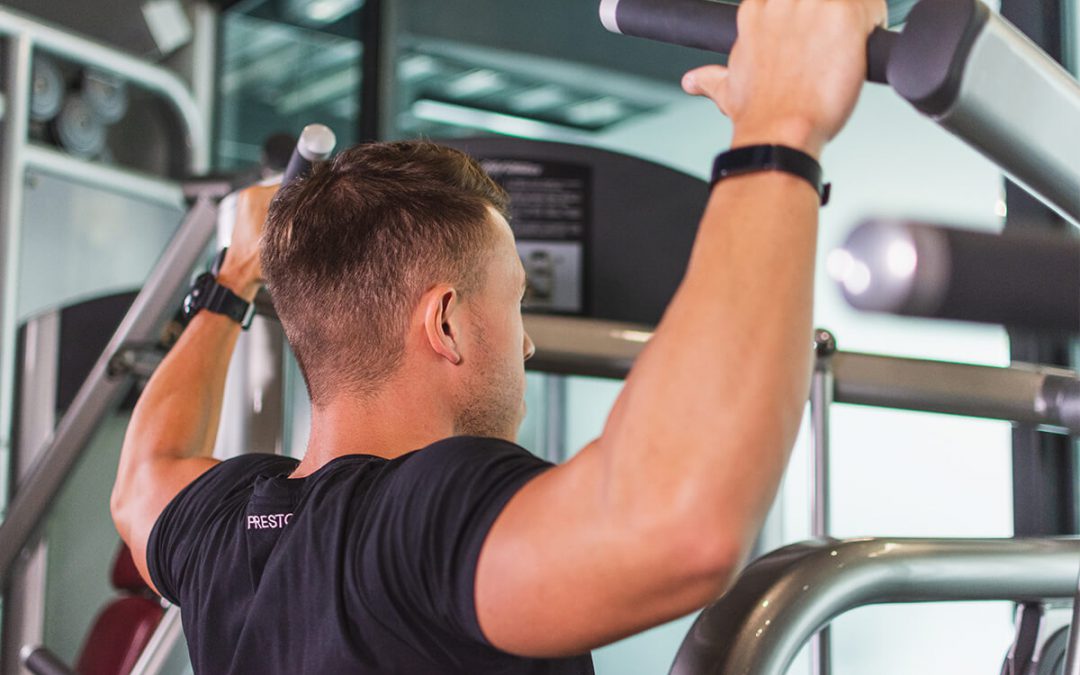What is the most popular wearable fitness tracker for gym goers?
What’s on your wrist? If you don’t wear a fitness tracker, you could be missing out on a whole host of benefits that will help you reach your fitness goals.
We carried out a survey of nearly 1000 UK gym-goers to see how many use wearable fitness trackers, which brands they like best, and what they’d recommend. If you’ve been thinking about getting your first wearable fitness tracker – or maybe upgrading the one you’ve got – keep reading for the most up-to-date info!
What is a wearable fitness tracker?
Fitness trackers have come a long way since the days of pedometers. Modern wearable fitness trackers pick up your every move, and can even give you valuable data about your sleep, recovery, workout intensity, heart rate and oxygen levels.
In this article, we’re focusing on wearable fitness trackers (meaning devices you wear on your wrist, hand, or arm). These are different to digital or app-based trackers where you input data manually.
How popular are wearable fitness trackers?
According to consumer data experts Statista, global shipments of watches, wristbands, and other wearable fitness trackers was at 533.6 million units in 2021. And this is a 20% year-over-year growth. It’s safe to say wearable fitness trackers are getting more popular every year, and they’re being bought by gym-goers, athletes, and people who want to live a more active healthy lifestyle.

Hussle’s fitness tracker survey
In August 2022 we surveyed 921 UK gym goers about their fitness wearables. 26.7% of respondent gym goers own a wearable fitness tracker, and women are more likely than men to own one (35.3% of women in our survey said they have a wearable fitness tracker, and 22.2% of men said they have one).
What are the most popular fitness trackers?
Have you ever wondered what fitness trackers people are using in gyms near me?
In our survey, 29% people who own a wearable fitness tracker have an Apple watch – and it was the most popular device for men and women.
In a close second place is the Fitbit at 26%. After that we heard about the Samsung Galaxy Watch (11% of respondents have one of these) and Garmin (10%). 8% of respondents have a Xiaomi Smart Band, 7% have a Whoop, 5% have an Amazfit device, and 3% have a Huawei Band. 1% of our survey respondents have an Oura ring which, unlike the other devices, is worn as a ring rather than a watch.
How to choose the best wearable fitness tracker
Fitness trackers are more than a gadget, they are a lifestyle accessory you will end up wearing all day long. So it makes sense to think about specs, functionality, and looks when you choose a device.
With so many wearable fitness trackers on the market (and Christmas just around the corner), here’s what to look for when you’re thinking about getting a wearable fitness tracker.
What do you need your fitness tracker to do?
Are you a runner who needs a device to track GPS distance and heart rate? Or do you need a tracker that can help you nail your sleep habits? Think about exactly what kind of training you do, what your fitness goals are, and what features you need your new fitness tracker to have. Think about battery life, whether you need GPS, and how you want the watch to connect with your phone.
How much should you spend on a fitness tracker?
You should expect to pay more for advanced features, so take a look at the number of sensors the watch has (and how many metrics it tracks). Don’t pay more for features you will never use, but equally don’t cut corners by buying a watch that won’t actually track all the things you need.
What size watch and strap do you want?
The final consideration is aesthetics. Do you want a sporty-looking watch or one you can wear with other outfits? How big do you want the watch and strap to be? Do you want replacement straps in different colours?
4 ways a wearable fitness tracker can help your fitness routine
Wearable fitness trackers give you detailed data that provides you with fascinating insights into your training, recovery, sleep, and daily habits. This can be super-motivating when you are starting a fitness routine or trying to kickstart a habit.
Tracking your progress
The data from your wearable fitness tracker will clearly show you how much progress you are making. If you run, it will show you distance and pace. If you lift, it will track your improvements. If you love classes, it will show you how your heart rate and recovery have changed. You’ll be able to look back over your data in charts, graphs, and numbers.
Keep you motivated
Motivation is crucial for maintaining a fitness routine, and a wearable fitness tracker can give you the boost you need. Just knowing your device is collecting data when you walk and workout can motivate you to stick to your routine.
Support recovery
If you’re a member of Team No Days Off, a fitness tracker can actually help you take the rest you need. When you see exactly how hard you’ve been working, you can feel justified in taking a rest day or a deload week. And some devices will tell you about sleep quality and readiness for exercise, giving you data you can’t argue with!
Creating a holistic routine
Wearing a fitness tracker device can help you see your gym workouts as one part of a bigger healthy lifestyle. A fitness tracker gives you total data about your day, so you can see whether you walk more, sleep well, or eat better on workout days.
Find gyms near me with Hussle’s huge network of gyms, pools, studios and leisure centres. Our day pass options and Monthly+ access makes it super easy for you to access the best facilities or try out a few wherever you are.



